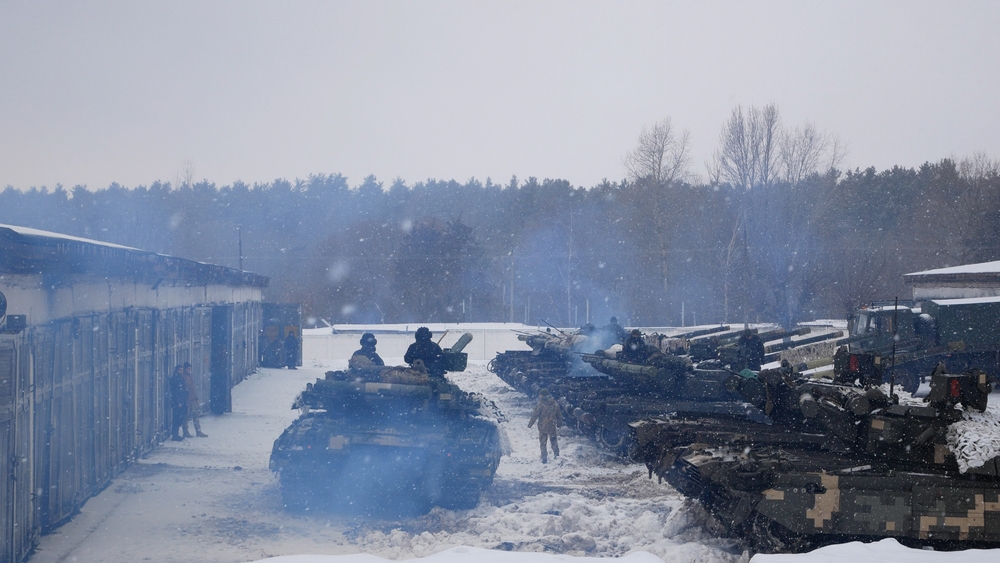UEFA has made the decision to relocate the Champions League final from St Petersburg to Paris, following Russia’s invasion of Ukraine yesterday.
The governing body called an extraordinary meeting in the aftermath of Russian military action, with the discussion primarily revolving around whether the Gazprom Arena should continue to host this year’s final.

The stadium takes its name from Russian state-majority owned energy supplier Gazprom, which is also the sponsor of the Champions League for this season, and has been at the heart of gas disputes between Russia and Ukraine since the mid-2000s.
Reaching a decision this morning, the UEFA Executive Committee decided to relocate the final to the Stade de France in Saint-Denis, Paris – the home of Paris Saint-Germain – and away from the Russian Federation’s second largest city.
A UEFA statement read: “UEFA wishes to express its thanks and appreciation to French Republic President Emmanuel Macron for his personal support and commitment to have European club football’s most prestigious game moved to France at a time of unparalleled crisis.
“Together with the French government, UEFA will fully support multi-stakeholder efforts to ensure the provision of rescue for football players and their families in Ukraine who face dire human suffering, destruction and displacement.”
With reports of Russian tanks close to Ukrainian capital Kyiv, missile strikes and air raids on major cities and fighting taking place across the country, UEFA has also decided that domestic teams from both countries will play their European home matches at neutral venues until further notice.
The governing body has also stated that it will ‘remain on standby’ to convene for further extraordinary meetings on an ongoing basis as the ‘legal and factual situation’ evolves in order to implement additional decisions ‘if necessary’.
Vladimir Putin’s invasion of his neighbour after years of tension between the Ukrainian state and Russian-backed rebel groups in eastern Ukraine has prompted widespread international condemnation.
As well as stripping Russia of its hosting rights for the upcoming European Cup final on 28 May, the conflict has also cast ongoing sponsorship arrangements in doubt – removing Gazprom’s sponsorship of the Champions League could be considered the logical next step for UEFA.
In Germany, Bundesliga club FC Schalke 04 made the decision yesterday to terminate its sponsorship agreement with the gas provider, instead opting to have the club’s name inscribed across its shirts.
Meanwhile, Manchester United reportedly plan to call a close to their contract with Russian airline Aeroflot, having chosen to fly to their clash against Atletico Madrid on Tuesday using British charter company Titan Airlines.
This morning, the UK government made the decision to ban all flights from the Russian airliner into the country, whilst Boris Johnson had previously addressed the Gazprom Arena issue by stating there is “no chance of holding football tournaments in a Russia that invades sovereign countries’.
Meanwhile, further developments have seen Chelsea owner and Russian billionaire Roman Abramovich banned from the UK and the Great Britain basketball team’s fixture in Russia postponed.
Additionally, both the International Ski Federation (FIS) and Formula One are said to be monitoring the situation in Eastern Europe closely, with the former concerned about the welfare of its participants in Russia whilst the latter may have to make a decision on the status of the Russian Grand Prix in Sochi.























